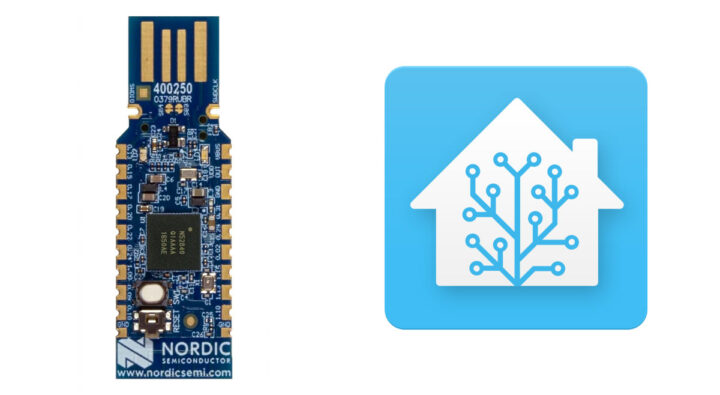zigpy-zboss is a Python library that adds support for Nordic Semiconductor nRF52840 modules to zigpy open-source Python Zigbee stack project, as well as other Network Co-Processor radios that run firmware based on ZBOSS Open Initiative (ZOI). This enables integration with compatible Zigbee gateway implementations such as Home Assistant’s ZHA integration component and allows users to directly control Zigbee devices from a wide range of manufacturers such as IKEA, Philips Hue, SmartSung SmartThings, ITEAD SONOFF, Xiaomi Aqara, and others.
Home Assistant’s ZHA integration already worked with Zigbee dongles based on Silicon Labs Mighty Gecko EFR32MG21 or Texas Instruments CC2652P microcontrollers, but now it’s possible to use nRF52840 dongles and development as Zigbee Coordinators thanks to the zigpy-zboss library.
The zigpy-zboss ZBOSS radio library for zigpy source code and resources can be found on GitHub, but note that this is still an unofficial and experimental port, so testers need to manually it to the ZHA component in Home Assistant. There’s an issue open in zigpy to add support for the main project.
The official Nordic Semi nRF52840 USB Dongle (nRF52840-DONGLE) as shown above sells for $10, but it comes without an enclosure, so an alternative could be USB dongles on Aliexpress that go for the same price but with a case and a USB Type-A connector. This should also work on the full nRF52840-DK devkit if you happen to have one. In any case, you’ll just need to load a firmware image built using the ZBOSS NCP Host sample from Nordic Semi as provided by the zigpy-zboss project.
Hedda, a regular CNX Software reader who tipped us about the project, also said the project may eventually work with the nRF5340 chip, and zigpy-zboss could eventually be of interest to ESPHome and Tasmota developers since Espressif provides ESP ZBOSS 3.0 Libraries and the Zigbee/Thread capable ESP32-C6 and ESP32-H2 chips will soon be supported in the upcoming ESP-IDF SDK v5.1. In other words, that means we could potentially see ESP32-H2 Zigbee dongles using the zigpy-zboss project supported by Home Assistant’s ZHA integration in the future.
Thanks to Hedda for the tip.

Jean-Luc started CNX Software in 2010 as a part-time endeavor, before quitting his job as a software engineering manager, and starting to write daily news, and reviews full time later in 2011.
Support CNX Software! Donate via cryptocurrencies, become a Patron on Patreon, or purchase goods on Amazon or Aliexpress





